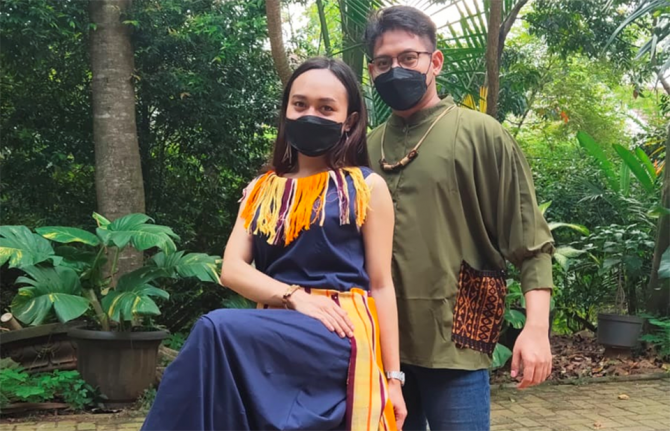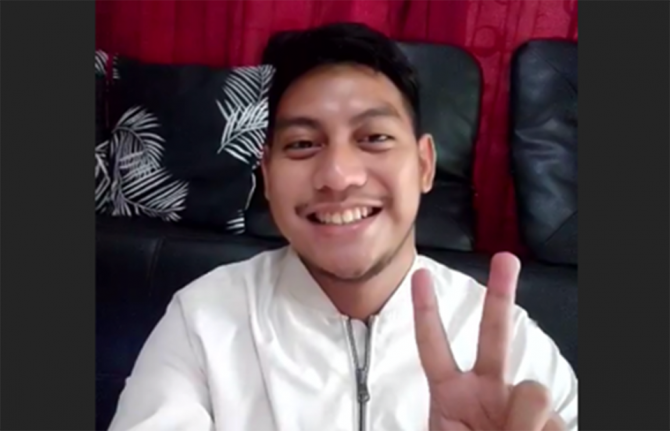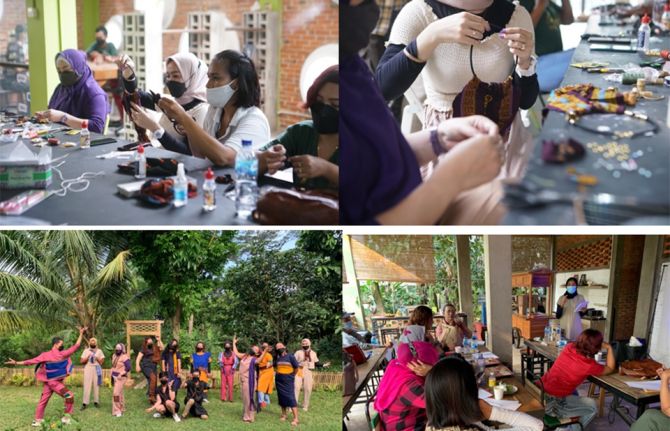



Feature Story
Fostering creativity to recover better from COVID-19
08 February 2022
08 February 2022 08 February 2022“Throughout the COVID-19 pandemic, I started seeing people around me getting laid off and many struggled to find new jobs. Many people, myself included, started to consider starting our own businesses to sustain our livelihoods in this challenging time,” said Abraham, who is a member of a young key population community in Jakarta, Indonesia.
People in vulnerable groups have been facing huge hardships during the COVID-19 pandemic. According to a survey conducted by the Crisis Response Mechanism Consortium in 2021, 79% of lesbian, gay, bisexual, transgender and intersex respondents were not working owing to the COVID-19 pandemic.
As an effort to support the livelihoods of people living with HIV and key populations, the International Labour Organization (ILO) and the UNAIDS Country Office for Indonesia partnered to conduct a training programme for more than 40 participants on fashion design and production and entrepreneurship from July to November 2021.
“As soon as I heard about this training, I was immediately intrigued because I am interested in fashion and I’m always open to try new things,” said Abraham, who was one of the participants of the training, which was facilitated by the Yayasan Rame Rame Jakarta and Kami Latu Initiative nongovernmental organizations. Classes, both online and face to face, were given on colour theory, pattern development, product development, strategic marketing, financial management, product story-making and product-making.
“I was very excited to be a part of the training and I had a lot of fun! The lessons were very useful for someone like me who is interested in starting my own small business, especially through e-commerce platforms. I gained business skills that are vital to entrepreneurship, such as marketing, calculating profits and understanding our products,” reflected Abraham. “And I also enjoyed that there were some practical sessions where we learned how to use the sewing machine to make accessories and to be creative in refurbishing traditional fabrics or plain old materials to create new improved fashion items.”
During the training programme, Abraham made earrings, bracelets and clothes alongside other enthusiastic participants. The camaraderie of the participants was strong, especially as they gathered for a fashion show and photo shoots to display their creations. Abraham stressed that these kinds of trainings are beneficial for key population communities and that, “While such training isn’t exclusively needed for key populations, it isn’t always the case where trainings provide a safe space to express oneself freely without fear of judgement.”
In addition to participants from communities of people living with HIV and key populations, workshops were also held for women in two villages in East Nusa Tenggara, namely Nggela and Manggarai Barat. The workshops provided them with skills that complement their traditional cloth (tenun) weaving, such as design skills to develop fashionable products using Indonesia’s traditional fabric and entrepreneurship skills, in an effort to improve their incomes and livelihoods.
Krittayawan Boonto, the UNAIDS Country Director for Indonesia, said, “As we enter the third year of the COVID-19 pandemic, vulnerable communities, such as people living with HIV and key populations, still need continued support and assistance to recover from economic hardships.”
In 2022, UNAIDS and the Yayasan Kusuma Buana nongovernmental organization will work together to ensure the participation of people living with HIV and key populations in the entrepreneurship trainings. Ms Boonto continued, “The entrepreneurship trainings offered through this joint United Nations project provide opportunities for vulnerable populations to apply their talents and find creative solutions to overcome challenges.”
The training programme is part of the activities under the United Nations COVID-19 Response and Recovery Fund for Employment and Livelihood, implemented jointly in Indonesia by ILO, UNAIDS, the United Nations Development Programme and the Office of the United Nations High Commissioner for Refugees.



